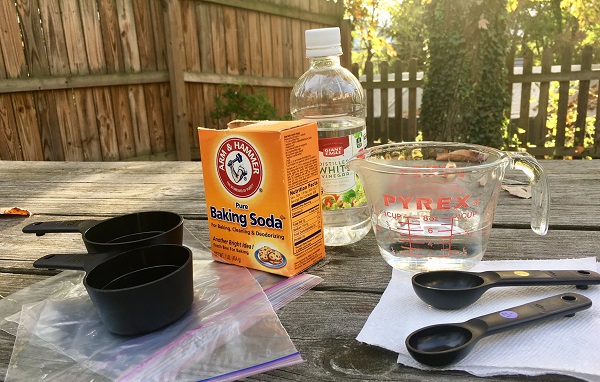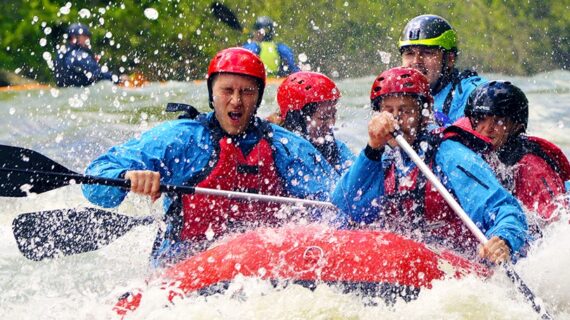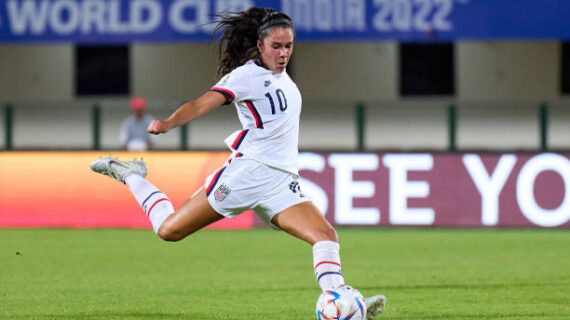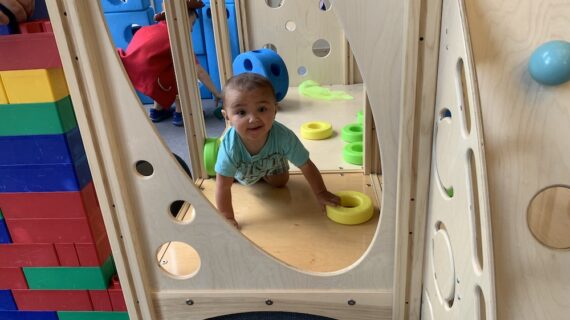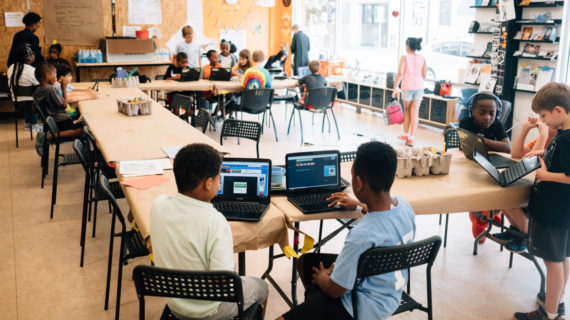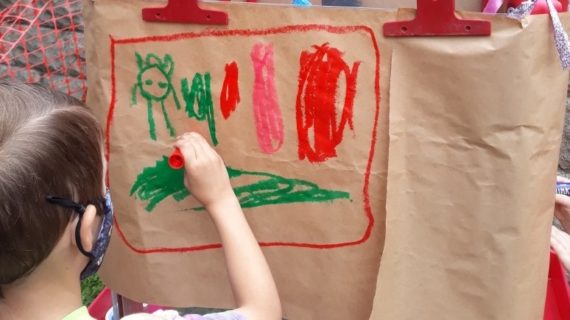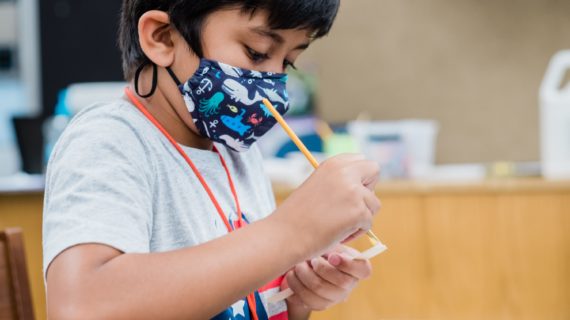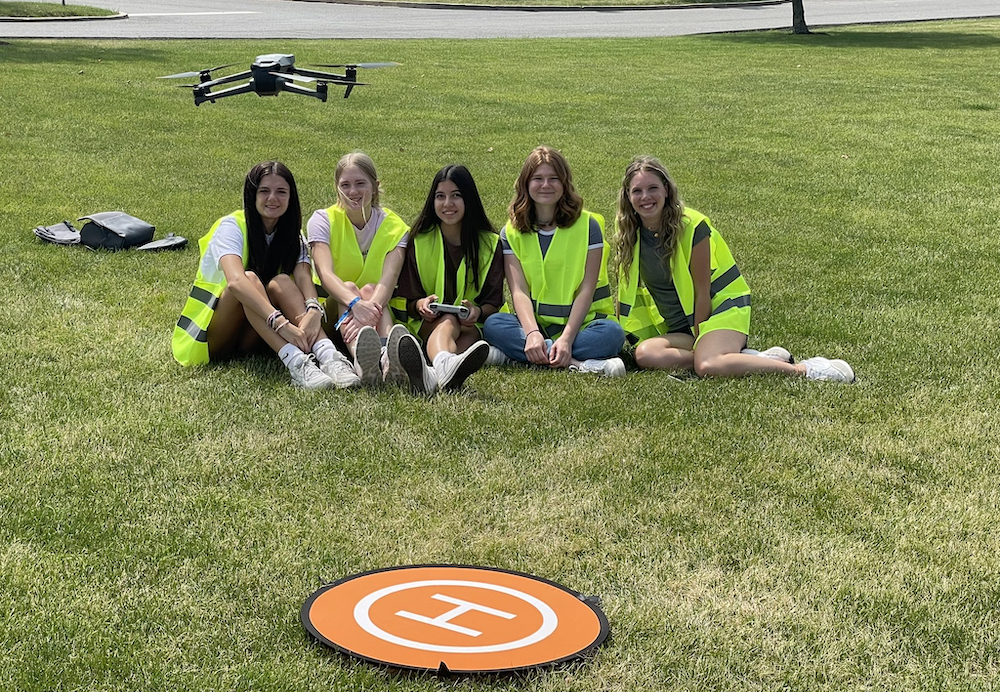
Fly Like a Girl program helps local teens become licensed drone pilots
Photo above of the Fly Like a Girl teens courtesy of KDKA.
Instead of footballs, it’s drones going through the goal posts at South Fayette High school. Using what looks like a video game controller, girls guide the drones through not only goal posts but also rings that are two feet in diameter. They also land drones on a similar sized pad. A new summer program called FLAG (Fly Like a Girl) is helping girls from five local high schools get an FAA license to fly drones in an effort to get more women into the field of drone technology.
“I’ve always been really interested in STEM and stuff. I thought this would be a cool opportunity,” says McKeesport High School junior Landree Watkins.
Breara Robinson, also a junior at McKeesport High School, agrees: “I did it because I like aviation. I thought it would be fun.”
Twenty girls from McKeesport, Ambridge, Beaver, Baldwin-Whitehall and South Fayette high schools are in the eight-session Fly Like a Girl summer program.
School leaders want these teenaged girls to feel empowered.
“In my experience in education for 22 years, boys tend to takeover, and if you have anything that’s electric, anything that’s sporty, anything that’s competitive, they’re going to take the first crack at it,” says Emily Sanders, assistant superintendent of Beaver Area School District.
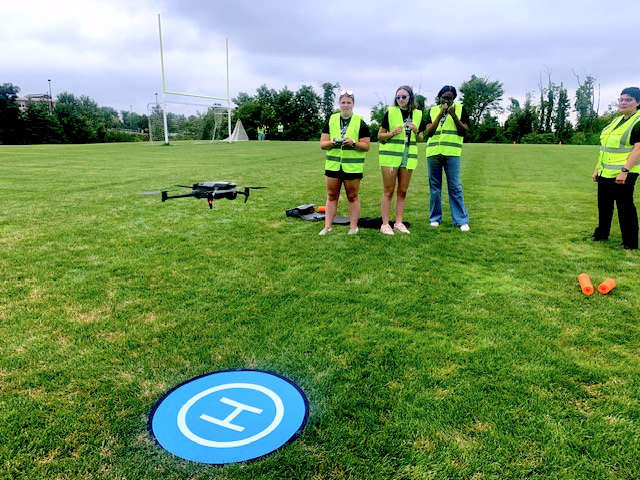
Women make up only 8% of the aviation industry workforce, and less than 3% of commercial pilots are Black or Brown. By offering this summer program specifically to girls, including some in districts with more minority students, the goal is to improve those numbers.
Sanders and other educators hope Fly Like a Girl will inspire some of the girls to pursue careers in aviation, starting with jobs as drone pilots — a job that’s expected to grow more than 50% over the next five years.
“Instead of working at an ice cream shop over the summer, perhaps being a lifeguard, they can actually fly drones. They can work for real estate agents. They can work for roofing companies. Really, it’s limitless what they can do for their summer jobs,” says Dr. Janeen Peretin, director of communication, innovation, and advancement for Baldwin-Whitehall School District.
At the end of the program, the girls will take the FAA test to get their license to fly a drone. In addition, the grant will pay the $175 test fee for each student, and the instructors will take them there so there is no barrier for them to get licensed.
“We want to prepare them for any future they want and to have a skill that is so marketable and crosses all sectors. It really positions them to think about their future and about how they can use it,” says Kristin Deichler, South Fayette School District’s assistant superintendent.
These girls are learning that getting a drone license takes more than just piloting skills. They learn a lot in the classroom, too.
Baldwin-Whitehall High School junior Gracie Gonzalez says she learned about “different aerospace, different weather things, when we can use the drone, when we can’t use the drone, how the drone works, all the different types of drones there are.”
Gonzalez wants to use her drone license to possibly become an EMT and rescue people using heat sensors on drones to find people in an avalanche, specifically ones on ski slopes, she says: “I’m a huge skier, have been skiing ever since I was two, and I would love to help on the ski slopes.”
The Fly Like a Girl program is possible because of a Moonshot grant from Remake Learning which covered the purchase of four drones, which cost about $3,000 each. FLAG organizers hope to offer the program to more students in the future.
The sky is the limit for these drones and these girls.
